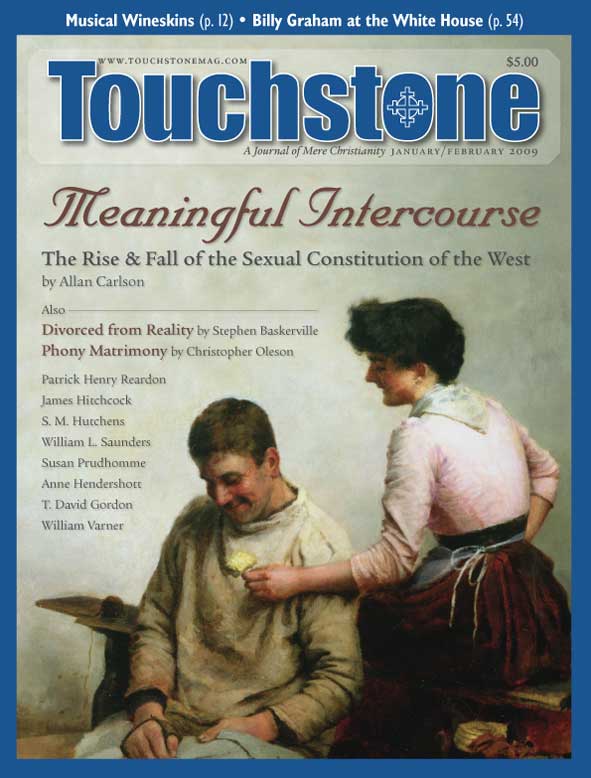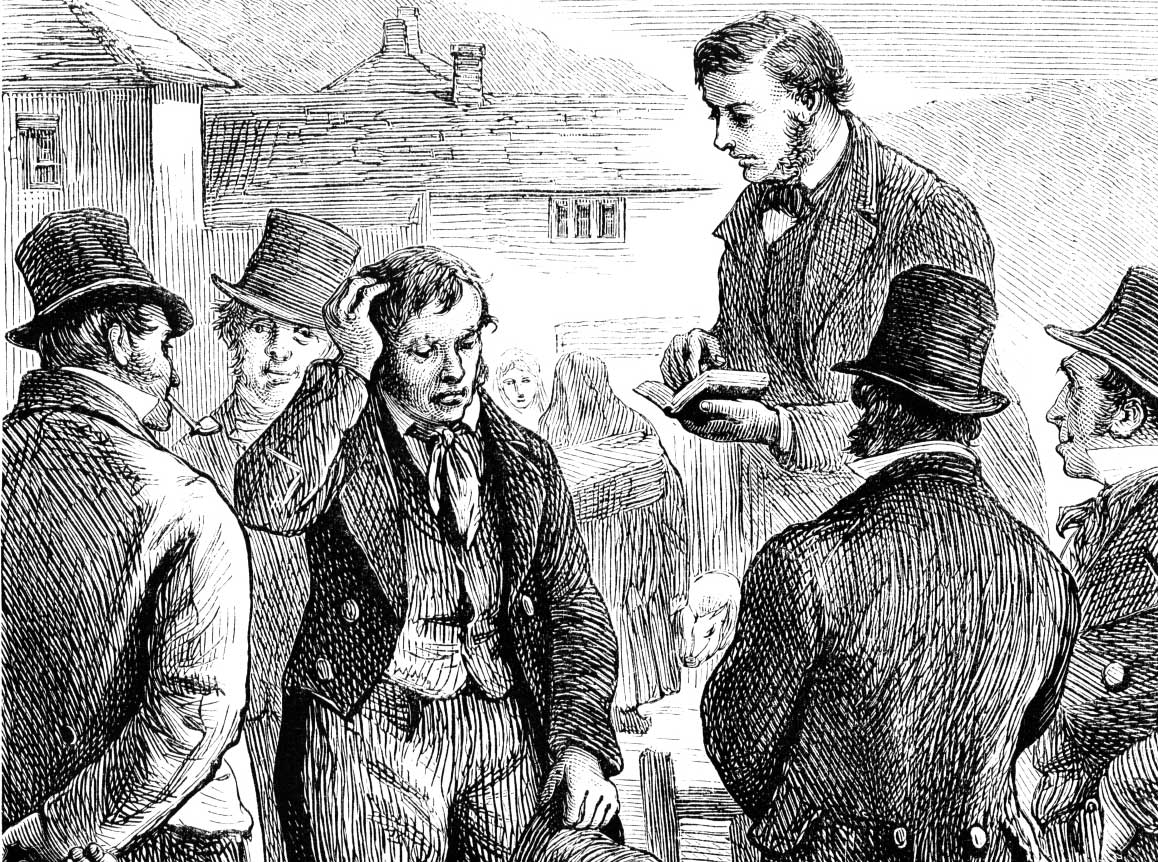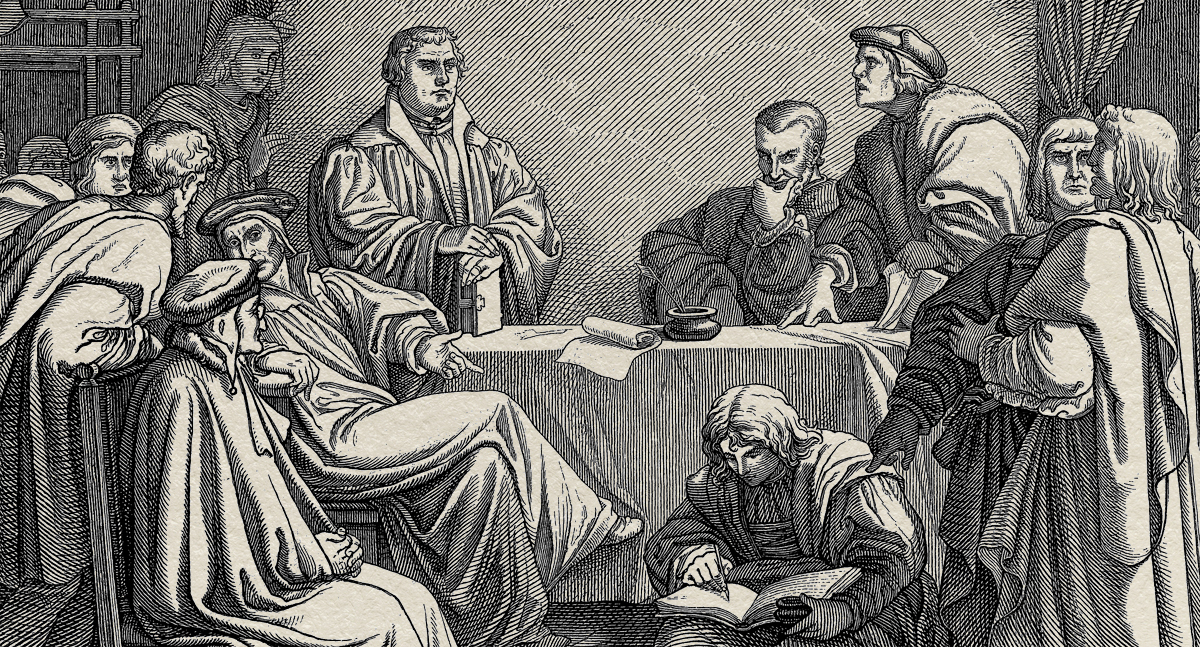Phony Matrimony
Or What King Kamehameha II Teaches Us About the Last Marriage Taboo
by Christopher Oleson
Last year’s decisions by the state Supreme Courts of California and Connecticut ruling it unconstitutional to prevent same-sex couples from entering fully into a legal marriage got me thinking again of Alasdair MacIntyre’s remarkable 1981 book, After Virtue. In that work MacIntyre makes the persuasive case that our contemporary moral vocabulary is at root unintelligible and arbitrary in much the same way that the Polynesian taboo precepts were before King Kamehameha II abolished them in 1819.
The remarkable thing about those taboo rules, MacIntyre noted, was that, over the course of time, their original significance and rationale had disappeared from the understanding of the Hawaiian islanders, while their observance remained in place. There was something unique, but inscrutable, about “taboo” prohibitions. They did not simply mean “forbidden.” Other things were forbidden, but not taboo. And yet, to the astonishment of a visitor like Captain Cook, no member of that island society seemed able to explain what exactly specified something as taboo, and why.
The society’s loss of the meaning and conceptual foundation of its moral vocabulary made it fairly easy for Kamehameha II to abolish the whole Hawaiian taboo system without much consequent upheaval in Polynesian society. For in reality, the Hawaiians had not actually been living by the original taboo precepts but by some remote and conceptually degenerate relic of them. The persistence of only a fragmented vestige of an originally larger whole left the opaque system of rules incapable of providing reasons for its demands. Thus, to borrow a line from T. S. Eliot, the hollow world of taboo prohibitions came to an end, not with a bang, but with a whimper.
Unfortunately for us, the moral language and practice of contemporary Western societies have, for quite some time, been in a condition uncannily similar to that of the early nineteenth-century Polynesians. In particular, our present vocabulary and customs concerning marriage seem to be entering that stage at which their long-standing rupture from marriage’s natural and original significance is provoking the monarchical abolition of now arbitrary “taboos” that can no longer be made sense of.
To put it more bluntly, traditional marriage as a public and cultural institution has not existed in our society for quite some time. What mainstream America, both conservative and liberal, religious and secular, has been and is now calling “marriage” is not really marriage, but a kind of contractually formalized “couplehood.” We have maintained the term “marriage” as an esteemed and protected word, but what that word once signified has lost its public existence within our culture. This is, of course, a highly distressing thesis, and, on the surface, it may seem an implausible one. Unfortunately, it is nevertheless true.
Procreative & Indissoluble
The older understanding of marriage, philosophically rooted in the natural law and historically embodied in the Christian tradition, included clear and unique qualities that specified a relationship as a marriage. The first and most obvious of these defining characteristics was that marriage was the singular place of appropriate sexual intimacy, and that this was always between one man and one woman. Classical natural law teaches that the actualization of our sexual faculties outside of this union is contrary to their natural, healthy, and humanly fulfilling end.
Yet even more important for the purposes of our discussion is the specific way in which this sexual uniqueness is to be actualized. The sexual union that is the singular gift of married life is always to be open to the generation of new life. Sex has natural purposes that must be respected if we are going to live life according to the Author of our nature. Chief among these is the generation of a family. Thus, at the heart of the marital covenant is, first, the inextricable intention to bring forth a family and, second, the commitment never to sunder one’s sexual life from that significance.
subscription options
Order
Print/Online Subscription

Get six issues (one year) of Touchstone PLUS full online access including pdf downloads for only $39.95. That's only $3.34 per month!
Order
Online Only
Subscription

Get a one-year full-access subscription to the Touchstone online archives for only $19.95. That's only $1.66 per month!
bulk subscriptions
Order Touchstone subscriptions in bulk and save $10 per sub! Each subscription includes 6 issues of Touchstone plus full online access to touchstonemag.com—including archives, videos, and pdf downloads of recent issues for only $29.95 each! Great for churches or study groups.
Transactions will be processed on a secure server.
more on marriage from the online archives
more from the online archives
calling all readers
Please Donate
"There are magazines worth reading but few worth saving . . . Touchstone is just such a magazine."
—Alice von Hildebrand
"Here we do not concede one square millimeter of territory to falsehood, folly, contemporary sentimentality, or fashion. We speak the truth, and let God be our judge. . . . Touchstone is the one committedly Christian conservative journal."
—Anthony Esolen, Touchstone senior editor












